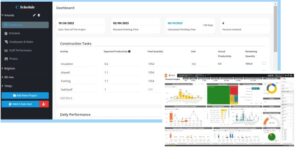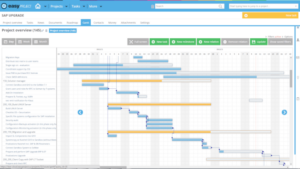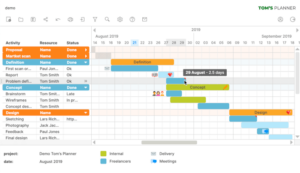Daily planner apps have become indispensable tools for navigating the complexities of modern life. These digital assistants offer a plethora of features designed to enhance organization, productivity, and overall well-being. From to-do lists and calendars to habit tracking and time management, daily planner apps cater to a wide range of needs, empowering individuals to take control of their time and achieve their goals.
The rise of daily planner apps can be attributed to the increasing demands of our fast-paced world. With constant notifications, deadlines, and commitments, it’s easy to feel overwhelmed and lose track of important tasks. Daily planner apps provide a centralized hub for managing these demands, helping users stay organized, focused, and on top of their game.
Daily Planner Apps: A Growing Trend
In today’s fast-paced world, staying organized and on top of your schedule is more important than ever. Daily planner apps have emerged as a powerful tool to help individuals manage their time effectively, increase productivity, and achieve their goals.
The popularity of these apps is soaring, with millions of users relying on them to streamline their daily lives.
Benefits of Using Daily Planner Apps
The benefits of using a daily planner app extend beyond simply managing your schedule. These apps offer a range of features that can significantly improve your productivity, reduce stress, and enhance your overall well-being.
- Improved Time Management:Daily planner apps provide a centralized platform to track your appointments, deadlines, and tasks. This helps you visualize your schedule, prioritize tasks, and allocate time efficiently.
- Increased Productivity:By organizing your tasks and deadlines, planner apps help you focus on what’s important. They also offer features like reminders and notifications, ensuring you never miss a crucial event or task.
- Reduced Stress:Having a clear overview of your schedule and responsibilities can significantly reduce stress levels. You’ll feel more in control and less overwhelmed by the demands of your day.
- Enhanced Goal Setting:Many planner apps allow you to set goals and track your progress. This helps you stay motivated, accountable, and on track to achieve your objectives.
Features and Functionalities
Daily planner apps come equipped with a variety of features designed to cater to different needs and preferences. Here are some of the most common functionalities:
- Task Management:Create and manage tasks, set deadlines, and prioritize them based on importance.
- Calendar Integration:Sync your schedule with your existing calendar, ensuring all your appointments and events are in one place.
- Reminders and Notifications:Set reminders and receive notifications to keep you on track with your tasks and appointments.
- Note-Taking:Jot down ideas, notes, or important information directly within the app.
- Goal Setting and Tracking:Set goals, track your progress, and visualize your achievements.
- Collaboration:Some apps allow you to share tasks and calendars with others, facilitating teamwork and collaboration.
- Customization:Customize the app’s appearance, layout, and features to suit your individual preferences.
Types of Daily Planner Apps

Daily planner apps come in various forms, each catering to specific needs and preferences. Understanding the different types can help you choose the app that best aligns with your organizational style and goals.
To-Do List Apps
To-do list apps are designed to help you manage your tasks effectively. They allow you to create lists, assign deadlines, prioritize tasks, and track your progress.
- Features:These apps often include features such as task creation, categorization, due date setting, reminders, and task completion tracking. Some advanced features may include subtasks, collaboration, and integration with other apps.
- Examples:Popular to-do list apps include Todoist, TickTick, Google Tasks, and Microsoft To Do.
- Strengths:To-do list apps excel at providing a clear and organized overview of your tasks, making it easy to prioritize and stay on top of your workload. They also offer flexibility in organizing tasks, allowing you to group them by project, context, or priority.
Calendar Apps
Calendar apps are essential for scheduling appointments, meetings, and events. They provide a visual representation of your schedule, allowing you to see what’s coming up and manage your time effectively.
- Features:Calendar apps typically offer features like event creation, scheduling, reminders, and calendar sharing. Some apps also allow you to integrate with other services like email or to-do lists.
- Examples:Popular calendar apps include Google Calendar, Apple Calendar, Outlook Calendar, and Calendly.
- Strengths:Calendar apps provide a centralized location for managing your schedule, ensuring you don’t miss important appointments or deadlines. They also allow you to easily share your calendar with others, making it convenient for scheduling meetings or coordinating events.
Time Management Apps
Time management apps go beyond simple task lists and calendars by helping you track your time, analyze your productivity, and improve your time allocation.
- Features:Time management apps often include features like time tracking, productivity analysis, task prioritization, and time blocking. Some apps may also offer features like distraction blocking, Pomodoro timer, and goal setting.
- Examples:Popular time management apps include Toggl Track, Clockify, Focus To-Do, and RescueTime.
- Strengths:Time management apps provide valuable insights into how you spend your time, allowing you to identify areas where you can be more efficient. They also offer tools to help you focus, avoid distractions, and manage your time effectively.
Habit Tracking Apps
Habit tracking apps are designed to help you build and maintain good habits. They provide a framework for setting goals, tracking progress, and staying motivated.
- Features:Habit tracking apps typically allow you to create habits, set schedules, track progress, and receive reminders. Some apps also offer features like streak tracking, habit analysis, and community support.
- Examples:Popular habit tracking apps include Habitica, Loop Habit Tracker, Strides, and Fabulous.
- Strengths:Habit tracking apps provide a structured approach to habit formation, making it easier to stay consistent and achieve your goals. They also offer motivational features like progress tracking and streak rewards, helping you stay engaged and motivated.
Essential Features of Daily Planner Apps
Daily planner apps are designed to streamline your daily activities and improve your productivity. These apps offer a wide range of features that cater to different user needs and preferences. To be truly effective, daily planner apps should possess certain core features that enhance organization, time management, and task completion.
Task Management
Task management is the cornerstone of any effective daily planner app. It enables users to create, organize, and track their tasks efficiently.
- Task Creation:Users should be able to easily add new tasks with clear descriptions, deadlines, and priority levels.
- Task Organization:The ability to categorize tasks into different projects, contexts, or lists helps users stay organized and prioritize their workload.
- Task Prioritization:Allowing users to prioritize tasks based on urgency or importance ensures that the most crucial tasks are addressed first.
- Task Completion:Marking tasks as complete provides a sense of accomplishment and allows users to track their progress.
These features help users break down complex tasks into manageable chunks, improve focus, and stay on track.
Scheduling
Scheduling is another crucial feature that allows users to allocate time for specific tasks and appointments.
- Time Blocking:Users can schedule specific time slots for tasks or meetings, promoting better time management and reducing distractions.
- Calendar Integration:Integrating with existing calendars ensures that all appointments and deadlines are visible in one central location.
- Event Reminders:Setting reminders for upcoming events and tasks helps users avoid missed deadlines and commitments.
Effective scheduling features help users stay organized, manage their time efficiently, and ensure that they meet their deadlines.
Reminders
Reminders are essential for ensuring that users stay on top of their tasks and appointments.
- Time-Based Reminders:Setting reminders for specific times helps users stay on track with their daily schedule.
- Location-Based Reminders:These reminders trigger when the user arrives at or leaves a specific location, making them ideal for tasks related to errands or appointments.
- Customizable Reminders:Allowing users to customize reminder frequencies and notification methods (e.g., sound, vibration, or pop-up) enhances the app’s usability.
Reminders serve as proactive prompts, helping users stay organized, avoid missed deadlines, and improve their overall productivity.
A daily planner app can be a great tool for individual productivity, but for teams, you’ll need something more robust. When your small team needs to collaborate on projects, best project management software for small teams can help you stay organized and on track.
And while project management software excels at the big picture, a daily planner app can still be a valuable tool for individual team members to manage their own tasks and schedules.
Goal Setting
Goal setting features enable users to define their long-term objectives and break them down into smaller, achievable steps.
- Goal Definition:Users can set specific, measurable, achievable, relevant, and time-bound (SMART) goals to guide their progress.
- Progress Tracking:The app should track progress towards goals, providing users with a visual representation of their achievements and motivating them to stay on track.
- Goal Reminders:Setting reminders for goal milestones or deadlines helps users stay focused and motivated towards achieving their objectives.
Goal setting features help users stay motivated, track their progress, and achieve their aspirations, whether personal or professional.
Benefits of Using Daily Planner Apps
In today’s fast-paced world, staying organized and productive is crucial. Daily planner apps have emerged as powerful tools to help individuals manage their time effectively, reduce stress, and achieve their goals. By providing a centralized platform for scheduling tasks, setting reminders, and tracking progress, these apps offer numerous benefits that can significantly enhance your daily life.
Enhanced Organization and Productivity
Daily planner apps streamline your daily activities, ensuring that you never miss a deadline or forget an important task. They provide a clear overview of your schedule, allowing you to prioritize tasks and allocate time efficiently.
- Task Management:These apps allow you to create to-do lists, assign deadlines, and categorize tasks based on priority. This helps you break down complex projects into manageable steps, making them less daunting.
- Calendar Integration:Many planner apps seamlessly integrate with your existing calendar, eliminating the need to switch between different platforms. This unified view of your schedule ensures you have a comprehensive understanding of your commitments.
- Reminders and Notifications:Setting reminders for important events, meetings, or deadlines helps you stay on top of your schedule. These apps can send timely notifications, ensuring you don’t miss anything important.
Impact on Time Management
Daily planner apps empower you to make the most of your time by fostering better time management habits. They provide a structured framework for planning your day, helping you identify time-wasting activities and allocate your time more effectively.
- Time Blocking:Apps often allow you to allocate specific time slots for different tasks. This technique helps you focus on one task at a time, minimizing distractions and improving productivity.
- Time Tracking:Some apps track the time you spend on different activities, providing insights into your work patterns and helping you identify areas where you can improve your time management.
- Goal Setting:Daily planner apps can help you set and track progress towards your long-term goals. By breaking down large goals into smaller, achievable steps, you can stay motivated and on track.
Stress Reduction
The ability to organize and manage your schedule effectively can significantly reduce stress levels. Daily planner apps provide a sense of control and clarity, helping you feel less overwhelmed and more in charge of your daily activities.
- Reduced Anxiety:By having a clear overview of your schedule and commitments, you can eliminate the worry of forgetting important events or deadlines. This reduces anxiety and promotes a sense of calm.
- Improved Focus:By prioritizing tasks and allocating time efficiently, you can focus on one task at a time, minimizing distractions and reducing mental clutter. This allows you to work more effectively and with less stress.
Goal Achievement
Daily planner apps can play a significant role in helping you achieve your goals. By providing a framework for setting objectives, tracking progress, and staying motivated, these apps can make a real difference in your journey towards success.
- Goal Setting and Tracking:Many planner apps allow you to set goals, break them down into smaller steps, and track your progress over time. This provides a clear visual representation of your achievements and keeps you motivated.
- Habit Formation:By consistently using a planner app, you can develop positive habits, such as planning your day, prioritizing tasks, and staying on track with your goals. This can lead to significant improvements in your overall productivity and success.
Choosing the Right Daily Planner App
With so many daily planner apps available, choosing the right one can feel overwhelming. The best app for you will depend on your individual needs and preferences. To make an informed decision, consider these key factors.
Platform Compatibility
The first step is to ensure the app is compatible with your preferred devices. Some apps are available on both iOS and Android, while others are platform-specific.
- If you primarily use an iPhone or iPad, look for apps available on the Apple App Store.
- For Android users, check the Google Play Store for compatible apps.
- Some apps offer web-based versions, allowing you to access your planner from any computer with an internet connection.
Feature Set
Daily planner apps offer a wide range of features, so it’s crucial to choose one that aligns with your specific needs.
- Task Management:Do you need to create and track tasks, set deadlines, and prioritize items? Some apps offer advanced task management features like subtasks, recurring tasks, and project management.
- Calendar Integration:Do you want to integrate your daily planner with your existing calendar? This allows you to view appointments and events alongside your tasks. Some apps even offer calendar syncing across multiple devices.
- Note-Taking:Do you need to jot down notes, ideas, or reminders? Some apps offer built-in note-taking features, allowing you to capture thoughts and organize information alongside your schedule.
- Reminders and Notifications:Do you need timely reminders about upcoming tasks or appointments? Many apps offer customizable notifications, allowing you to stay on top of your schedule.
- Collaboration:Do you need to collaborate with others on tasks or projects? Some apps offer features like shared lists, task delegation, and real-time communication.
User Interface
The user interface (UI) is crucial for a smooth and enjoyable user experience. Look for an app with a clean, intuitive, and visually appealing design.
- Navigation:The app should be easy to navigate, allowing you to quickly access the features you need.
- Customization:Some apps allow you to customize the UI, such as choosing color themes, fonts, and layouts. This can enhance the app’s appeal and personalize your experience.
- Responsiveness:The app should be responsive and fast, ensuring a smooth experience across devices.
Pricing
Daily planner apps come in various pricing models.
- Free Apps:Many apps offer a free version with basic features. However, they may have limitations, such as restricted functionality or advertising.
- Subscription-Based Apps:Some apps offer a subscription model, providing access to premium features for a monthly or annual fee.
- One-Time Purchase:Some apps are available for a one-time purchase, granting access to all features without ongoing costs.
Tips for Evaluating and Comparing Apps
- Read Reviews:Before making a decision, read reviews from other users to get insights into the app’s strengths and weaknesses.
- Try Free Trials:Many apps offer free trials, allowing you to test the features and see if it meets your needs.
- Compare Features:Make a list of your essential features and compare different apps based on their offerings.
- Consider Your Budget:Determine your budget and choose an app that aligns with your financial constraints.
- Experiment:Don’t be afraid to try different apps until you find one that suits your workflow and preferences.
Integrating Daily Planner Apps with Other Tools
In today’s digital landscape, efficiency and seamless workflow are paramount. Daily planner apps have evolved to become more than just simple scheduling tools; they now seamlessly integrate with other productivity applications, creating a unified ecosystem for managing tasks, communication, and information.This integration fosters a more streamlined workflow, eliminating the need to switch between multiple applications and minimizing the risk of missed deadlines or crucial information.
Benefits of Integration
The benefits of seamless integration extend beyond convenience. By connecting different tools, users can gain a holistic view of their daily activities, ensuring they stay on track and maintain focus.
- Enhanced Productivity:Integration allows users to access and manage information from various sources within a single interface, reducing context switching and maximizing productivity.
- Reduced Errors:By automatically syncing data across applications, integration minimizes the risk of errors arising from manual data entry or inconsistencies between different tools.
- Improved Collaboration:Integrated tools facilitate seamless collaboration by enabling shared access to calendars, tasks, and other relevant information.
Examples of Integration
Here are some real-world examples of how daily planner apps integrate with other productivity tools to enhance efficiency:
- Email Integration:Daily planner apps can integrate with email clients, allowing users to automatically schedule tasks based on emails received. For example, an email requesting a meeting can be automatically added to the user’s calendar, eliminating the need for manual entry.
- Calendar Integration:Integrating with calendar apps allows users to view their schedule alongside their daily tasks, providing a comprehensive overview of their day. This integration also ensures that appointments and meetings are reflected in both the calendar and the planner, preventing scheduling conflicts.
- Task Management Integration:Many daily planner apps integrate with task management platforms, allowing users to create, assign, and track tasks from within the planner. This integration provides a centralized location for managing all tasks, regardless of their origin.
Best Practices for Using Daily Planner Apps
Daily planner apps can be powerful tools for boosting productivity and achieving your goals. However, their effectiveness depends on how you use them. Here are some best practices to maximize the benefits of daily planner apps.
Setting Realistic Goals
Setting realistic goals is crucial for staying motivated and avoiding overwhelm. Instead of aiming for ambitious targets that are difficult to achieve, break down large tasks into smaller, manageable steps. For example, instead of setting a goal to “write a novel,” aim to write 500 words per day.
This approach makes the task feel less daunting and more achievable.
Prioritizing Tasks
Prioritizing tasks allows you to focus on the most important activities first. The Eisenhower Matrix, a popular time management tool, categorizes tasks based on urgency and importance. By focusing on urgent and important tasks first, you ensure that the most critical items are addressed.
Using Reminders Effectively
Reminders are a valuable feature of daily planner apps. By setting reminders for important tasks, meetings, or deadlines, you reduce the risk of forgetting important commitments. However, it’s important to use reminders judiciously. Avoid setting too many reminders, as this can lead to reminder fatigue.
Instead, prioritize reminders for tasks that are critical and have a high probability of being forgotten.
Customizing Settings and Features, Daily planner app
Daily planner apps often offer a wide range of settings and features. By customizing these settings to suit your individual needs and preferences, you can enhance the app’s usability and effectiveness. For example, you can adjust the notification frequency, customize the app’s theme, and choose the most relevant features for your workflow.
Future Trends in Daily Planner Apps
The daily planner app market is constantly evolving, with new technologies and user preferences shaping the future of how we manage our time and tasks. From the integration of AI-powered features to personalized recommendations and gamified experiences, the landscape is poised for significant transformation.
AI-Powered Features
The integration of artificial intelligence (AI) is revolutionizing daily planner apps, offering users a more personalized and efficient experience.
- Predictive Scheduling:AI algorithms can analyze user data, such as past schedules, commitments, and recurring tasks, to predict future needs and proactively suggest optimal scheduling options. For example, an AI-powered planner could suggest booking a meeting during a specific time slot based on the user’s usual availability and the attendees’ schedules.
- Smart Task Prioritization:AI can help users prioritize tasks based on importance, urgency, and deadlines, ensuring they focus on the most critical activities first. By learning from user behavior and preferences, AI algorithms can tailor prioritization strategies to individual needs.
- Contextual Reminders:AI can send contextually relevant reminders based on location, time, and other factors. For instance, a planner could remind users to pick up groceries on their way home from work or to check their email when they arrive at the office.
Personalized Recommendations
Personalized recommendations are becoming increasingly important in daily planner apps, as users seek tailored experiences that cater to their unique needs and preferences.
- Customizable Workflows:Users can customize their planner’s interface and functionality to suit their specific work style and preferences. For example, they can choose from different task management methods, such as Kanban boards or to-do lists, or select from a variety of themes and layouts.
- Goal-Based Planning:Daily planner apps can help users set goals and track progress towards achieving them. Based on user-defined goals, the app can recommend relevant tasks, provide insights into progress, and offer motivational support.
- Personalized Insights:By analyzing user data, planner apps can provide personalized insights into time management patterns, productivity levels, and areas for improvement. This information can help users optimize their workflow and achieve greater efficiency.
Gamified Experiences
Gamification is emerging as a powerful tool for engaging users and promoting positive habits in daily planner apps.
- Points and Rewards:Users can earn points or rewards for completing tasks, achieving goals, or maintaining consistent use of the app. This gamified approach can provide a sense of accomplishment and motivation.
- Progress Tracking:Daily planner apps can incorporate progress bars, charts, and other visual elements to illustrate user progress towards goals. This gamified approach can make task completion more engaging and rewarding.
- Challenges and Competitions:Users can participate in challenges or competitions to motivate themselves and stay engaged with the app. These gamified elements can foster a sense of community and encourage healthy competition.
The Future of Daily Planner Apps
Daily planner apps are poised to play an even more central role in productivity and time management in the future.
- Seamless Integration:Daily planner apps will become increasingly integrated with other productivity tools, such as email, calendar, and project management platforms, to provide a more unified and efficient workflow.
- Focus on Well-being:As the focus on work-life balance grows, daily planner apps will incorporate features that promote well-being, such as mindfulness exercises, stress management techniques, and time-blocking for relaxation and leisure activities.
- Augmented Reality and Virtual Reality:Future daily planner apps may leverage augmented reality (AR) and virtual reality (VR) technologies to create more immersive and engaging experiences. For example, users could visualize their schedule in a virtual environment or interact with tasks in a more intuitive way.
Last Point
In conclusion, daily planner apps have revolutionized the way we approach productivity and time management. By offering a comprehensive suite of features, these apps empower individuals to streamline their workflows, reduce stress, and achieve their goals with greater efficiency.
As technology continues to evolve, we can expect even more innovative and personalized solutions to emerge, further enhancing the power and potential of daily planner apps.





